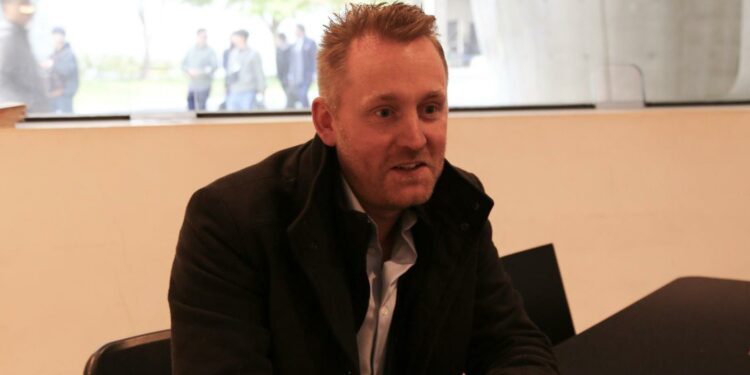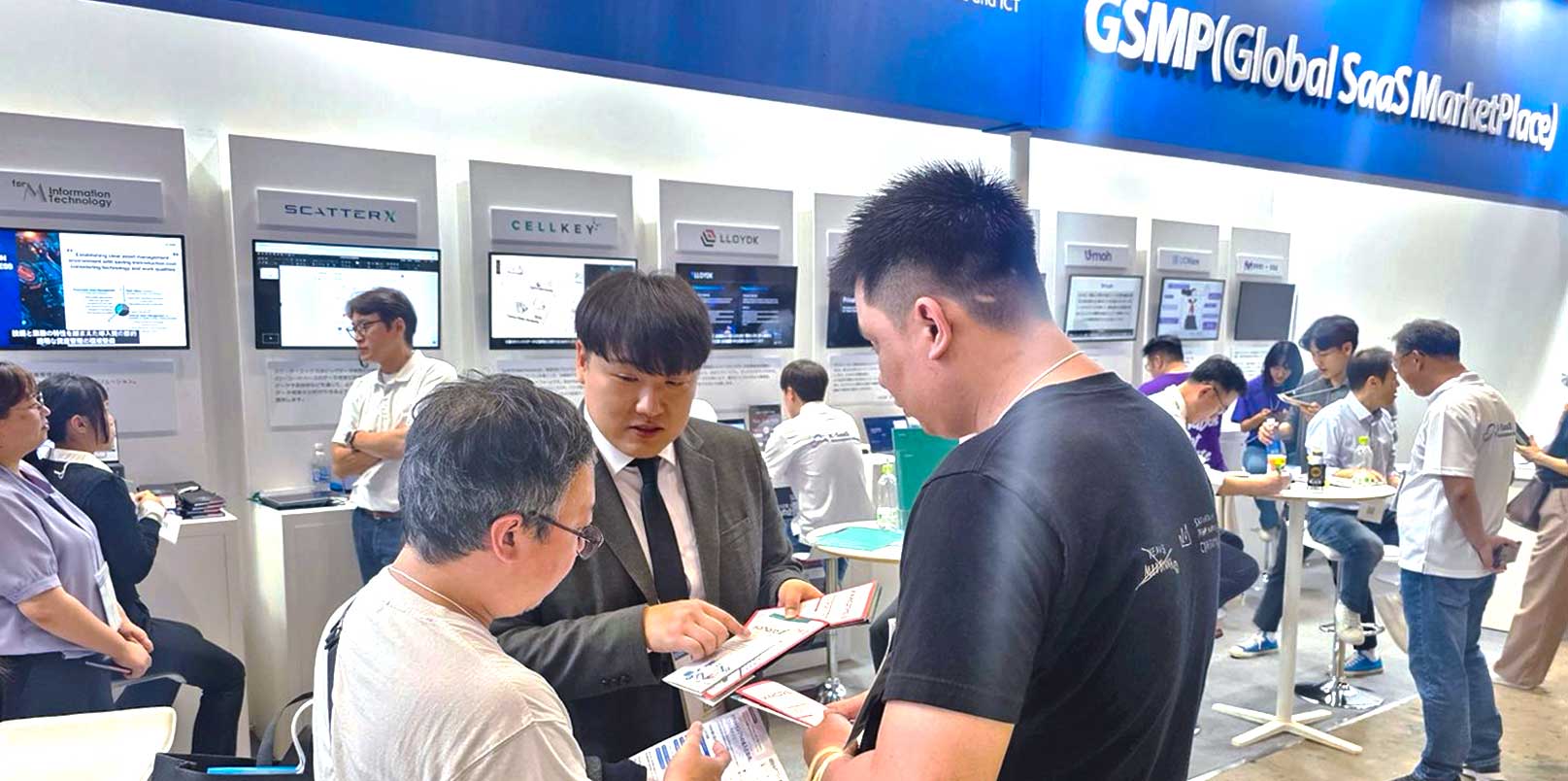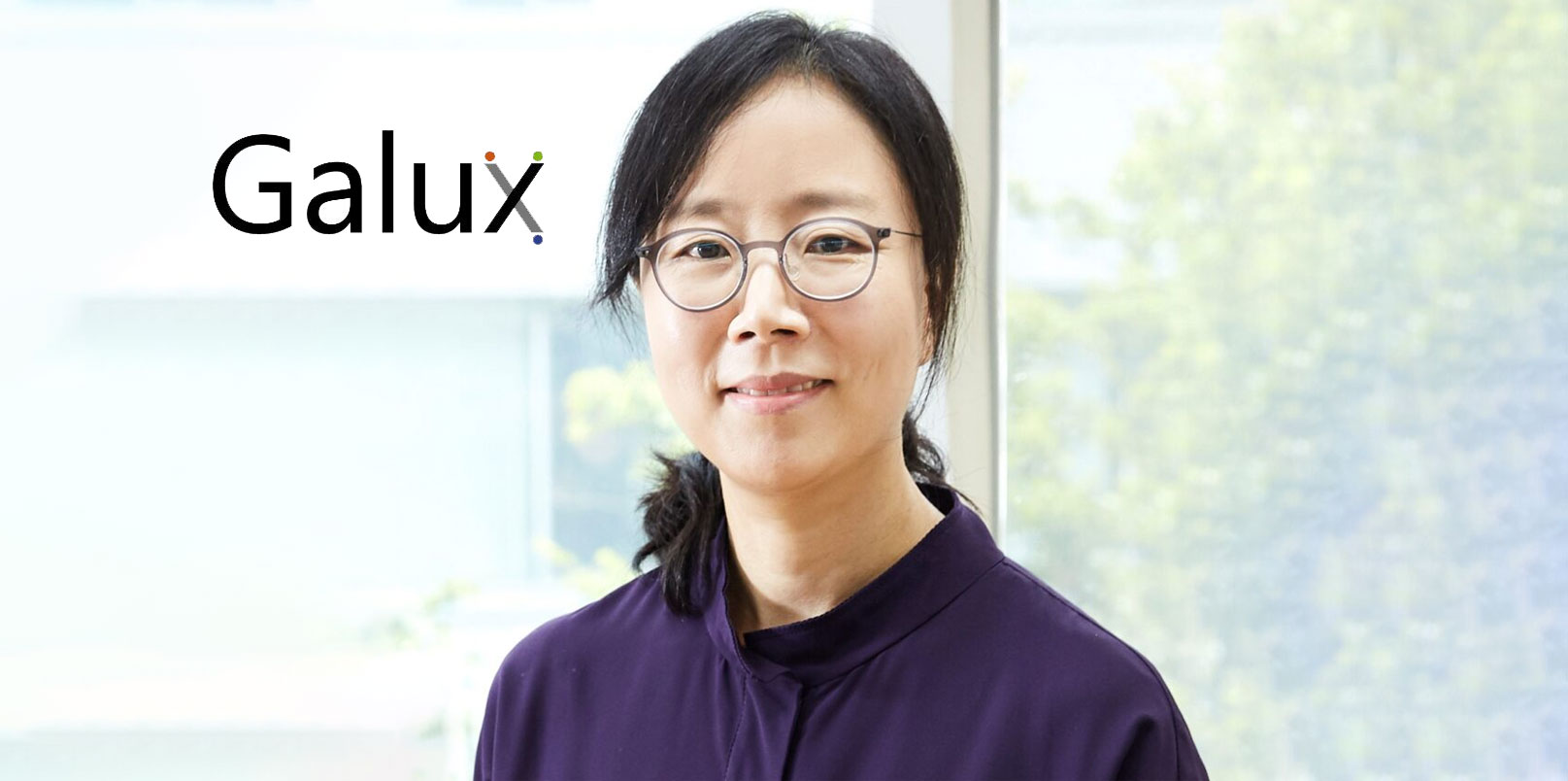“Most industry leaders, like myself, often operate at unconventional hours and, simultaneously, recognize the need for balance. Maintaining this equilibrium can be challenging for founders, particularly when transitioning between work and family life demands. Still, it is vital,” shared Klaus Wehage, co-author of the Wall Street Journal Bestseller and National Bestseller, “Global Class,” as he gave some valuable insights for startups and entrepreneurs on the side-lines of COMEUP 2023.
In a candid conversation with Koreatechdesk.com, Klaus Wehage, who has co-authored the Wall Street Journal Bestseller “Global Class” with Aaron McDaniel, delves into crucial aspects of business success, sharing insights on mindset, team building, and the importance of aligning priorities.
Wehage highlights the need for localization and adapting to diverse markets, urging a revisit of agile principles during global scaling. Klaus also shared about the “Global Class” Master Class, a strategic initiative designed to empower companies and entrepreneurs in upskilling for global success.
Q: Can you tell us about your book “Global Class” and how it has been received worldwide and in South Korea?
I’m the co-author of the book “Global Class,” a Wall Street Journal national bestseller in the US. The book was published in South Korea in August and is set for release in Vietnam, Brazil, Poland, and China focus on scaling globally. It delves into the challenges of transitioning from a local company to a global one, emphasizing aspects like developing the right mindset, building effective teams, and aligning priorities. We explore the need for localization and adapting to diverse markets, emphasizing the importance of revisiting agile principles during global scaling.
Q: Could you share your experiences with the South Korean startup ecosystem, particularly your attendance at the COMEUP event?
Comparing my experiences over the past two years, I’ve noticed a positive shift towards a more global perspective in the Korean startup ecosystem. The last time I was here, just a year ago, it was hyper-local, and it was hard for someone like me to come in and engage with people. But this year, the COMEUP event, led by the team Jaeuk Park, has made strides in transitioning to a more globally oriented conference. This shift is vital for the ecosystem’s growth, creating a melting pot that allows for diverse perspectives, essential for startup development and entrepreneurship. So, that is needed for the ecosystem to truly grow to the next phase.

Q: What advice do you have for Korean startups aiming for global success?
For those aspiring to build a global company, it’s crucial to consider international aspects early on. Often, seemingly minor decisions in the early stages, like hiring and product development tailored only for the local market, can significantly impact future scalability.
Consider Global Aspects Early On
If you desire to build a global company, some things that seem like minor decisions in your early stage can significantly impact the future. Simple things like the people you hire in your company as it evolves and you grow into a 20 and 30 or 40 or 50 people organization and even more. Now, if you hired specifically for the Korean market and built a product specifically for the Korean market, that’s different. But if you say, let’s create a global company, we must think of other markets as we build the business. Otherwise, it makes it very hard to scale in the future. I see that tendency happening a lot in Korea versus if you look at other ecosystems where markets are smaller; they have a global mind in the beginning.
Challenges of Scaling to Different Cultures
Fostering a global company mindset will change the impact and perspective on how to build the product, form the teams, and even build a culture. That allows for flexibility in an organization that can scale globally because you have a much more international perspective embedded and integrated within the company.
And to give you a simple example, there’s a Danish company called Pleo, a financial services accounting software for SMEs. Of the first 21 hires initially, 17 spoke in different languages. And if you look at Canva, a design platform company, out of the first 200 employees, they spoke 70 different languages. Contrasting this with some Korean organizations reveals a potential shortfall. When you are a 300, 400, or 500-people company and you want to scale globally, the company, the teams, and the employees need to understand all the cultures.
For example, let’s say you want to expand to India, a market vastly different from your native environment. The dynamics of interaction, business etiquette, and communication styles differ significantly. The potential for breakdowns in communication is heightened, as cultural nuances can be easily misunderstood or overlooked. To mitigate these challenges, companies aspiring for global expansion must invest in cultural intelligence and cross-cultural training, especially in diverse markets.
Importance of Company Vision
The ratio of companies that have been successful internationally from Korea is very low compared to a market like Denmark, with a population of 6 million. Companies must integrate a global vision into their core identity to bridge this gap and establish a global ecosystem. Unfortunately, this integration is lacking in many Korean companies.
There is an aspiration, but there is not a vision and pursuit of it. That needs to happen more. Many companies need help perceiving global scaling as a monumental leap, primarily because they need to gain experience navigating international markets. This discomfort often leads to hesitation in making critical decisions required for global expansion.
In Korea, startups are great in technology, but it still needs to be out. It’s not like the way Americans, Europeans, or even Korean corporations like Samsung and LG. But also the times have changed. Back in the day, when Samsung and these companies were flourishing and building, there was not much competition. But now, with the rise of innovation, entrepreneurship and everything, you have to compete.
To address this gap and empower Korean companies in their global journey, initiatives like our Master Class courses aim to provide guidance and practical knowledge. The course is
designed to equip companies with the necessary skills and insights, facilitating informed decision-making and instilling confidence in taking that a significant step forward.
Q: Discussing leadership in entrepreneurship, can you elaborate on the importance of balancing and involving teams in the company-building process?
Effective leadership in a startup requires involvement and collaboration across functions. Agile and collaborative teams, where sales and marketing seamlessly integrate, contribute to a customer-focused mindset. Leaders should empower teams to learn, unlearn, iterate, and pivot, fostering a culture of continuous feedback. This involvement creates a dynamic and responsive environment crucial for a startup’s success.
When it comes to being a good leader, it’s important to have people involved in the company building process, not just being separated by functions. You have to be super agile and collaborative amongst the team. So the sales team has to interact with the marketing team to make sure they can integrate with each other in terms of the learnings that they’re having over time.
In my perspective, most employees early on have to have that customer development mindset, that entrepreneurial mindset to be willing to learn, unlearn, iterate, pivot and change along the way and have strong feedback loops amongst a small team. That’s important, and the leader has to facilitate that. A leader also has to show that by doing that all the time. Empowering the teams to be involved in that conversation is critical to ensure you get customer feedback and so forth all the time.
Q: What are common mistakes you observe founders making, especially when scaling globally?
A common mistake when scaling globally is maintaining a rigid, command-and-control approach with local teams. Assuming that successful strategies from one market can be replicated without adjustments elsewhere often leads to failure. Empowerment, autonomy, and trust are vital in scaling globally. Creating strong feedback loops between teams in different markets fosters a two-way innovation process, enhancing adaptability and success.
When scaling globally, having a local mindset and not revisiting customer development are things to consider. Then, there is a management approach that’s typically where many companies fail. When you scale the company in one market, you succeed and feel like you’ve learned a lot. Because of that confidence, there’s a tendency to be more in command-and-control of the local team.
There is no realization that things are different in other markets and that they don’t have that exposure, and often, companies fail. It is a mistake to assume that the company’s way of working over the past five to six to seven years will naturally translate into other countries.
So again, it’s about empowerment, it’s about granting autonomy and trust. It’s about involving those guys over 1000 miles away to participate in the scaling process. It should not just be limited to their market but have this vital feedback where they can learn from the other markets and embed that into their company strategy.
Q: From an investor’s perspective, what qualities should they look for when investing in companies?
In the early stages of evaluating startups, investors prioritize certain qualities in founders beyond mere metrics. The key elements they seek in founding teams revolve around expertise, determination, passion, and a long-term mindset. Investors are keen on identifying founders who are focused on more than just quick wins but are committed to enduring the challenges of the entrepreneurial journey.
Metrics, although considered, are viewed with a degree of skepticism. Investors understand that the information presented on slides may only sometimes provide a complete picture of a startup’s potential. Therefore, they look beyond the numerical data, recognizing that it might be exaggerated or selective in the early stages.
The founders’ ability to articulate their approach and share insights into how they’ve built the company is emphasized. This involves a more in-depth exploration of the founders’ experiences, learning processes, and strategic decisions. Investors seek founders who can transparently communicate their journey, acknowledging the uncertainties of the startup landscape.
Furthermore, investors analyze the synergy within founding teams. They assess how team members’ skill sets complement each other and contribute to the startup’s overall capabilities. The team’s potential to dominate a specific market and effectively address a particular problem is a critical factor influencing investment decisions.
Q: Can you share details about the Master Class of ‘Global Growth’?
One of the big things we discovered in doing the research for the book, interviewing the 400 executives, is that international expansion of growth is a lonely experience, a journey.
Interaction, feedback loops, and shared experiences are vital for success. Our Master Class aims to fast-track companies by providing structured courses, playbooks, and resources to avoid common mistakes and accelerate growth. The goal is to certify companies and founders in global growth and venture, fostering comfort in making informed decisions about international expansion.
It’s important for the government, the accelerators and all stakeholders to be intentional about education. The big missing piece is people who have that experience. There’s only a little experience when it comes to expansion and growth of building global companies, which is lacking a little bit in Korea, whereas it’s more dense in some other ecosystems. So, for example, Israel is very good at commercializing technology internationally. And so, again, that is what I’m hoping to do with the global master class we developed.
We also have an international expansion community. Most executives tasked to lead internationally get sent to other countries. They realize things are different, and they have to combat the biases of an organization. And it’s hard. Not only do they have to figure out how to find a product market fit in a new country, but they all have to get the company to react, act, help, and support them. So you have to deal with things on both ends, which is very hard. And so again, we’re hoping to enlighten companies more on that interaction; those feedback loops are absolutely needed to be successful.
Our Master Class, comprising 80 videos over 10 hours, covers mindset, team building, and localization topics. By sharing insights and experiences, we hope to upskill companies faster and help them avoid costly mistakes. We believe in certifying companies and founders in global growth and venture, empowering them to make informed decisions about international expansion.
Also Read,
- Unveiling Key Lessons for Korean Startups Eyeing Global Expansion from COMEUP 2023
- HyperEZ CEO Yoon Sangseok, Revolutionizes 3D Ecosystem: Making 3D Content Creation Accessible to All
- Korean startup Rezi’s founder Jacob Jaquet about sustaining a successful resume service
- Korean startup founder Julie Choi shares details about creating Pickit – the world’s first K-Pop digital collectible marketplace










